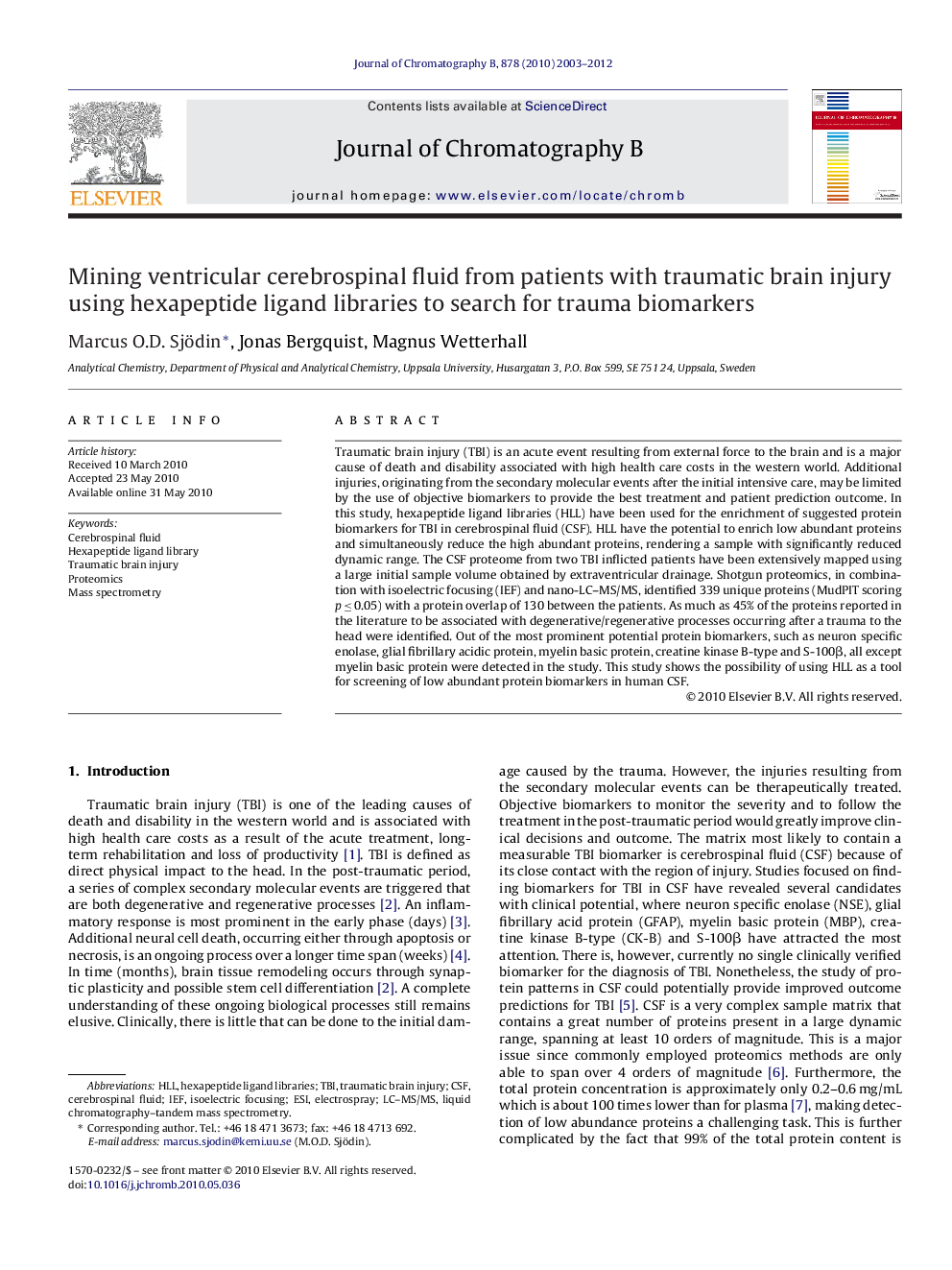| Article ID | Journal | Published Year | Pages | File Type |
|---|---|---|---|---|
| 1213922 | Journal of Chromatography B | 2012 | 10 Pages |
Traumatic brain injury (TBI) is an acute event resulting from external force to the brain and is a major cause of death and disability associated with high health care costs in the western world. Additional injuries, originating from the secondary molecular events after the initial intensive care, may be limited by the use of objective biomarkers to provide the best treatment and patient prediction outcome. In this study, hexapeptide ligand libraries (HLL) have been used for the enrichment of suggested protein biomarkers for TBI in cerebrospinal fluid (CSF). HLL have the potential to enrich low abundant proteins and simultaneously reduce the high abundant proteins, rendering a sample with significantly reduced dynamic range. The CSF proteome from two TBI inflicted patients have been extensively mapped using a large initial sample volume obtained by extraventricular drainage. Shotgun proteomics, in combination with isoelectric focusing (IEF) and nano-LC–MS/MS, identified 339 unique proteins (MudPIT scoring p ≤ 0.05) with a protein overlap of 130 between the patients. As much as 45% of the proteins reported in the literature to be associated with degenerative/regenerative processes occurring after a trauma to the head were identified. Out of the most prominent potential protein biomarkers, such as neuron specific enolase, glial fibrillary acidic protein, myelin basic protein, creatine kinase B-type and S-100β, all except myelin basic protein were detected in the study. This study shows the possibility of using HLL as a tool for screening of low abundant protein biomarkers in human CSF.
